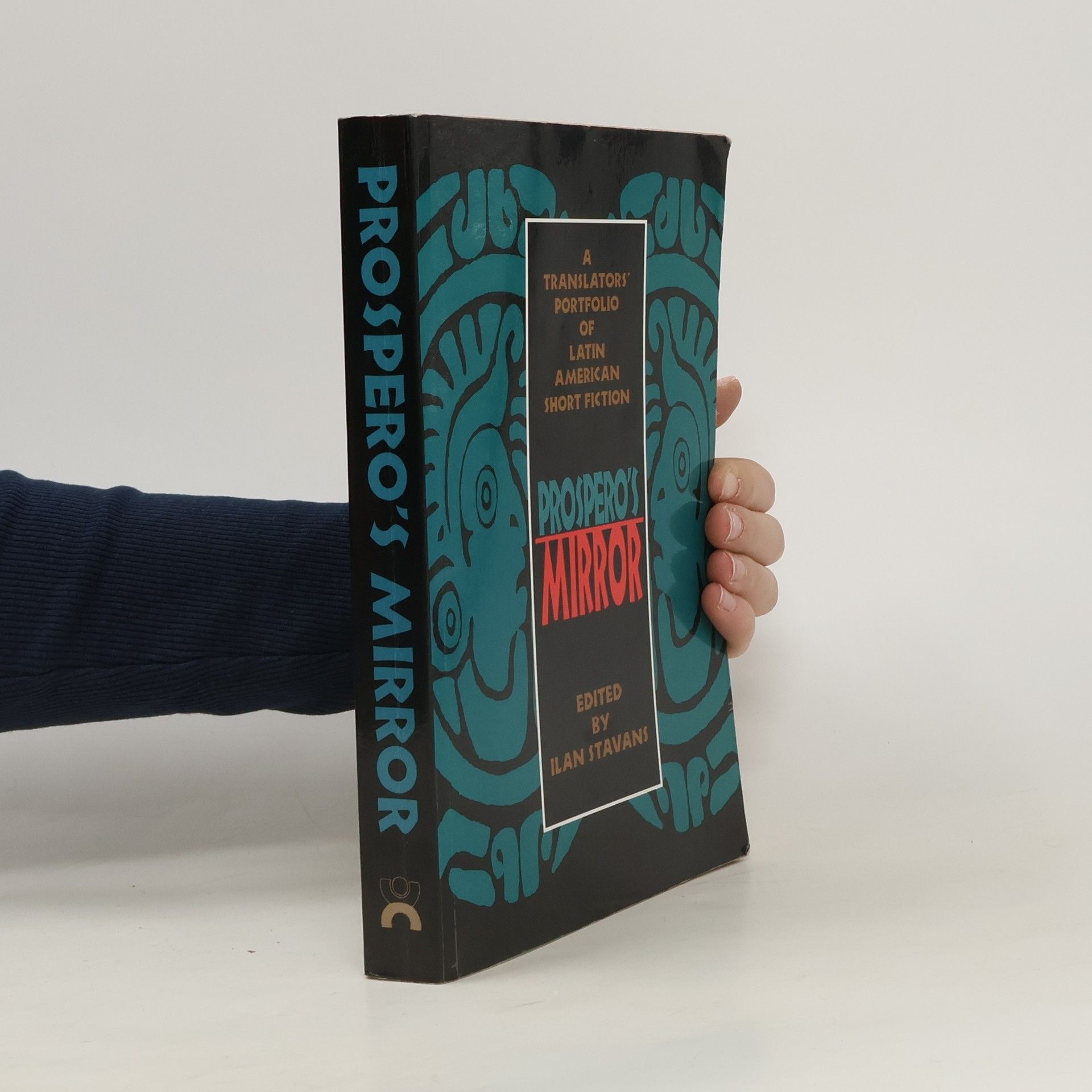A young boy discovers a secret language spoken by his Abuela, prompting him to inquire about its origins. His mother's explanation reveals the rich history of Spanish Jews, igniting his passion to learn Ladino. This journey not only connects him to his heritage but also highlights the importance of cultural identity and family ties.
Ilan Stavans Book order (chronological)
Ilan Stavans is a distinguished scholar and writer whose work delves into the rich tapestry of Latin American and Latino culture. As an award-winning author and public television host, he critically examines the intersections of language, identity, and cultural exchange. His writings explore the complex narratives that emerge from the blending of diverse traditions and experiences. Stavans offers profound insights into the Hispanic experience and its indelible mark on the broader societal landscape.






Exploring the profound impact of language on identity and experience, this collection features autobiographical meditations by Ilan Stavans. Through personal reflections, he delves into how language shapes our thoughts, relationships, and culture, revealing its integral role in defining our lives.
I Am of the Tribe of Judah
- 384 pages
- 14 hours of reading
The first anthology of its kind, I Am of the Tribe of Judah brings together poetry from the Mexican border to the tip of South America. Originally written in Spanish, Portuguese, Yiddish, Ladino, Castidish, and Hebrew, these poems have been translated into English, many for the first time, by a group of prize-winning translators.
What is American Literature?
- 224 pages
- 8 hours of reading
An engaging, thought-provoking, and polemical volume on what makes American literature what it is today.
Octavio Paz: A Meditation
- 89 pages
- 4 hours of reading
Selected Translations
- 208 pages
- 8 hours of reading
A international collection of poems celebrating the beauty of poetry in different languages.
Jewish Literature: A Very Short Introduction
- 176 pages
- 7 hours of reading
"An in-depth, thorough exploration of modern Jewish literature from 1492 to the 21st century, rotating around the concept of "aterritoriality" to appreciate the diasporic journey Jews have embarked on across geographic and linguistic spheres from 1492 to the present. At the centre of it are canonical figures like Franz Kafka, Isaac Babel, Bruno Schulz, Anne Frank, Martin Buber, Hannah Arendt, Isaac Bashevis Singer, Saul Bellow, Philip Roth, Grace Paley, Jacobo Timerman, Moacyr Scliar, and Susan Sontag. Unlike the output of other national literatures, Jewish literature doesn't have a fixed address. As a result, its practitioners are at once insiders and outsiders"--
The Seventh Heaven
- 296 pages
- 11 hours of reading
Stavans's Ongoing Quest to Find a Convergence Between the Personal and Historical
Popol Vuh: A Retelling
- 160 pages
- 6 hours of reading
The most important creation story in the Americas before the European conquest,Popol Vuh was a millennia-old oral tradition that, in the 16th century, as the Mayan civilization was being threatened with destruction, was written down in verse by members of the K'iche' nobility in what is today Guatemala. That original was translated into Spanish by a priest and then vanished mysteriously. Composed of four parts, Popol Vuh tells the story of how the world was created in a series of rehearsals that included wooden dummies, demi-gods, and eventually humans. Cosmic in scope and yet intimately human,Popol Vuh offers invaluable insight into the Mayan way of life before 1492, their code of ethics, their views on death and the afterlife, and their devotion to passion, courage, and the natural world. One of the most extraordinary sections of the narrative is the description--as inspired as Dante's hell--of the underworld, Xibalba. Equally archetypal is the legend of the ultimate king, who, in the face of tragedy, became a spirit that accompanies his people in their struggle for survival. In his prose retelling of this classic that is as seminal as theIliad andOdyssey, award-winning scholar of Latin American civilization Ilan Stavans offers a much-needed opportunity to appreciate the timeless resonance of the account, while also connecting it with the current plight of the indigenous people of the Americas.